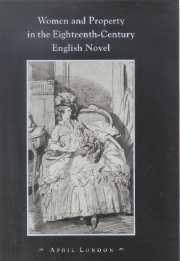Book contents
- Frontmatter
- Contents
- Acknowledgements
- Introduction
- PART I SAMUEL RICHARDSON AND GEORGIC
- Introduction
- 1 Clarissa and the georgic mode
- 2 Making meaning as constructive labor
- 3 Wicked confederacies
- 4 “The work of bodies”: reading, writing, and documents
- PART II PASTORAL
- PART III COMMUNITY AND CONFEDERACY
- PART IV THE POLITICS OF READING
- Epilogue
- Notes
- Bibliography
- Index
4 - “The work of bodies”: reading, writing, and documents
Published online by Cambridge University Press: 14 October 2009
- Frontmatter
- Contents
- Acknowledgements
- Introduction
- PART I SAMUEL RICHARDSON AND GEORGIC
- Introduction
- 1 Clarissa and the georgic mode
- 2 Making meaning as constructive labor
- 3 Wicked confederacies
- 4 “The work of bodies”: reading, writing, and documents
- PART II PASTORAL
- PART III COMMUNITY AND CONFEDERACY
- PART IV THE POLITICS OF READING
- Epilogue
- Notes
- Bibliography
- Index
Summary
The interest of Belford's role in the book lies less in his distinct attributes as a character and more in the function he serves as purported editor of the correspondence we read. The source of the published text and the design behind its production are revealed to us only as Clarissa readies herself for death. Intent on having “justice” done to her character by securing a “protector of [her] memory,” she requests that Belford, “the only gentleman possessed of materials that will enable him to do [her] character justice” (1176), serve as her executor. Clarissa's testamentory origins give an additional ironic twist to its status as property: it is both a material object, “The History of a Young Lady”, and an extended prologue to “The Will” through which the heroine orders her worldly goods and her vindication. From her perspective, the publication of the correspondence affords strong evidence that she is “well satisfied of [her] innocence” and marks the relinquishment of her ties to the world of the living. In sparing her “the necessity of writing her own story” (1178), Belford thus releases her from the thrall of the past: “I shall also be freed from the pain of recollecting things that my soul is vexed at; and this at a time when its tumults should be allayed in order to make way for the most important preparation” (1176–7).
Yet despite this turn inward, Clarissa retains an acute sense of audience. She anticipates in highly characteristic moral terms the reception of her text.
- Type
- Chapter
- Information
- Publisher: Cambridge University PressPrint publication year: 1999



